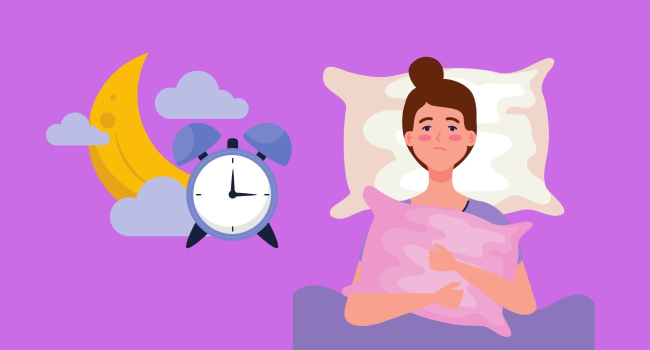- Latest news▼
-
18:28, May 2 Sixth Armenian International Ophthalmological Conference will be held on 17-19 May

-
16:11, May 2 ВJN: High-fat foods may increase the risk of heart attack and stroke at a young age

-
14:16, May 2 Patterns: Neural network created that models outcome of various patient therapy methods

-
12:05, May 2 Armenia joins Council of Europe convention on protection of patients' rights

-
14:27, May 1 Journal of Neuroscience: Sluggishness of the elderly is due to greater use of calories, research finds

-
10:26, May 1 AstraZeneca admits its Covid vaccine can cause thrombosis

-
19:31, April 30 Scientists calculated how much time per day you should be sitting, standing and sleeping

-
17:37, April 30 The Conversation: Keeping bread in the fridge improves its health benefits

-
14:30, April 30 Frontiers in Molecular Biosciences: Researchers use AI to identify 191 new destructive viruses

-
08:38, April 30 The Guardian: First personalized cancer vaccine developed

-
23:55, April 29 Ketodiet improved the condition of patients with schizophrenia and bipolar disorder

-
19:47, April 29 In 64% of COVID-19 survivors, the condition worsens after one year

-
15:41, April 29 ECU: body tilt in patients after stroke was found to be curable

-
13:37, April 29 Blood: blood cancer drugs may be useful in rheumatoid arthritis

-
13:15, April 29 362 cases of measles recorded in Armenia so far in 2024

All materials
Doctors advise being in light longer during day for better sleep

In winter, some people have trouble sleeping because they do not spend enough time in the daylight, this conclusion was made by scientists at the University of Washington.
The study was conducted on 507 students at the same university. The data showed that students got about the same amount of sleep each night regardless of the time of year. But on school days in winter, students went to bed an average of 35 minutes later and woke up 27 minutes later than on summer school days. This finding surprised the team because Seattle is located at high latitudes and gets about 16 hours of sunlight on a summer solstice day, with enough evening light for social life, and just over eight hours of sunlight on a winter solstice day. That is, evening activity in the summertime with sunlight intuitively seemed to make more sense.
It turned out to be because of the body's internal clock - circadian rhythms. Light during the day - especially in the morning - speeds up your clock, so you get tired earlier in the evening, but exposure to light in the late afternoon or early night delays your clock, delaying the onset of fatigue. Ultimately, falling asleep time is the result of a collision between these opposite effects of light exposure at different times of day, the scientists explained. Each hour of daylight "pushed" the clock forward by 30 minutes, while evening light pushed the clock back by 15 minutes. Thus, because students did not get enough daylight during the winter, their circadian clocks lagged behind compared to summer.
In this regard, scientists recommend going outside during the winter more often during the day, because this effect occurs mostly with natural light - even in cloudy weather.
Follow NEWS.am Medicine on Facebook and Twitter
- Related News
- The Conversation: Keeping bread in the fridge improves its health benefits Studies have shown that storing bread in the freezer can prevent spikes in blood sugar and insulin, reducing the risk of metabolic disorders and cardiovascular disease...
- Ketamine may help with postpartum depression In the end, only 6.7 per cent of the mothers who took S-ketamine experienced a major depressive episode...
- Daily Mail: vitamin A, B3 and E supplements can be dangerous And some supplements affect the effectiveness of medicines...
- Diets are pointless in case of acne, dermatologist says They invent different things, as if you can't eat dairy products, eggs, chocolate…
- Chinese tai chi helps lower blood pressure, study finds The traditional, slow-moving form of Chinese martial art helps better than aerobic exercises…
- Video
- Event calendar
- Archive
- Most read
month
week
day
- ESCMID: New method of purifying the air with ultraviolet light could protect world from new pandemic 1452
- Enzymes that convert different blood groups into first group are discovered 1309
- 3 women diagnosed with HIV for first time after getting ‘beauty injections’ in US 1149
- 362 cases of measles recorded in Armenia so far in 2024 836
- In 64% of COVID-19 survivors, the condition worsens after one year 817
- Ketodiet improved the condition of patients with schizophrenia and bipolar disorder 787
- ECU: body tilt in patients after stroke was found to be curable 774
- Blood: blood cancer drugs may be useful in rheumatoid arthritis 750
- The Guardian: First personalized cancer vaccine developed 654
- Scientists calculated how much time per day you should be sitting, standing and sleeping 651
- Frontiers in Molecular Biosciences: Researchers use AI to identify 191 new destructive viruses 616
- The Conversation: Keeping bread in the fridge improves its health benefits 615
- AstraZeneca admits its Covid vaccine can cause thrombosis 540
- Journal of Neuroscience: Sluggishness of the elderly is due to greater use of calories, research finds 443
- Armenia joins Council of Europe convention on protection of patients' rights 177
- Find us on Facebook
- Poll





